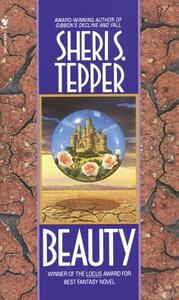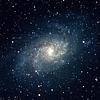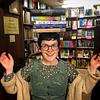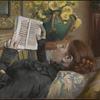Take a photo of a barcode or cover
Interesting take, but I think I prefer the more traditional varieties of Robin McKinley, or those by Mercedes Lackey. This one just felt... long and awkward, at times. I've read "Beauty" a few times, but with spaces of around 7 years between each reading, and I'm still on the fence as to whether I like it. I liked it more when I first read it as a teenager, and less with each re-read, so I should probably stop now.
I like a lot of Sheri S Tepper's rhetoric, but I couldn't get into this book. In my opinion, she is better at sci fi than fantasy.
This is a deeply strange book, twisting fairytale tropes to tell a story of environmental collapse, destructive religion, sexual abuse, feminism, and gender politics, among many other things (including the loyalty of cats, who so rarely get their due in literature). I don't know how well it hangs together but I loved reading it.
#27 of my #20for2020tbrchallenge, to read 20 TBR books this year
This is a feminist classic, and one of the first fairy tale retellings for adults; I've been interested in this book for years. Although it is nothing like I'd imagined from the blurb, it's a compelling albeit often frustrating read, and it's still very timely and thought-provoking.
As the Author's Note makes clear, this is meant to be an allegory about environment destruction, at the beauty dying in the world, and a plea for humankind to do better before it's too late.
Unfortunately, it's very much a product of it's time, the early 1990s. The emphasis on acid rain, saving the whales, zealous Pro-Lifers and the dangers of "horrorporn" might seem very strange to younger readers today. It is an unabashedly Feminist novel, and although I greatly respect that, it is also as subtle as a sledgehammer, and tends to be a bit too much at times.
The story itself is an incredibly bizarre journey, styled as a diary written by Beauty, daughter of the Duke of Westfaire, which is a perfect, medieval magical storybook kingdom.
Beauty is, as her name suggests, very beautiful. Her mother was a fairy, but kept her heritage a secret from her mortal husband until Beauty's fairy aunts showed up to grant her blessings at her Christening.
Along with the gifts she was given, she was also delivered a curse: a sleeping sickness to activate on her 16th birthday. Beauty's father cannot abide his wife's otherworldly heritage, so she departs for Faerie immediately after the christening, leaving Beauty motherless.
When Beauty discovers a note from her mother shortly before her 16th birthday, she manages to avoid the curse. As the kingdom slips into sleep and is grown over by briar roses, Beauty escapes.
Although Beauty only becomes aware of this much later, one of her faerie aunts - Carabosse, the fairy of clocks - is manipulating Beauty's life (with the help of her consort Israfel) and had given her another, secret gift at her christening that must be preserved at all costs.
Over time, Beauty learns to travel between realms and times, as Carabosse intended. However the journey that follows over the course of Beauty's long lifetime often sees her end up at the wrong time or place.
Beauty accidentally ends up in the 22nd century, beyond the future that Carabosse can foresee, when she stumbles into a film crew that has travelled back in time to film the "last magic" - the now sleeping Westfaire. When Beauty sees the horrors that await, she becomes determined to prevent that future from happening.
Long-lived due to her fairy blood, we travel with Beauty over several lives, the gradual loss of magic through the centuries, and ultimately reach her confrontation with mortality. Her aging is underscored, affectingly, by the many generations of her faithful cat Grumpkin.
And the fairy tale of Snow White takes a nasty turn, as the character is embodied by her granddaughter (and some perverted dwarves).
This is not an easy story. It turns very grim when the Dark Lord - a power hungry Fae - catches glimpses of Beauty throughout the years and seeks to possess her, sending predatory men after her. I don't usually issue these, but there is an important Trigger warning:
The Dark Lords' hell - rather cleverly full of manifestations made by horror writers, for the Fae and the Angels cannot create, only men can - is briefly glimpsed but incredibly grotesque and unforgettable.
Beauty does get a sort of Happily Ever After, but - fittingly - there is no grand fairy tale ending. The ending is as uneasy as the story itself, deliberately so I suspect. While Beauty isn't exactly a likeable character, being too passive and not very curious, I did respect her persistence and endurance. And she had a very human, cunning intelligence which the faeries could not understand.
Overall, this is a very unusual work, and it is thought provoking. It won't appeal to all audiences, but the central message is perhaps more important than ever right now. I'm glad I finally read it, although I doubt I'll ever read it again.
I will, however, look for more of Tepper's work!
This is a feminist classic, and one of the first fairy tale retellings for adults; I've been interested in this book for years. Although it is nothing like I'd imagined from the blurb, it's a compelling albeit often frustrating read, and it's still very timely and thought-provoking.
As the Author's Note makes clear, this is meant to be an allegory about environment destruction, at the beauty dying in the world, and a plea for humankind to do better before it's too late.
Unfortunately, it's very much a product of it's time, the early 1990s. The emphasis on acid rain, saving the whales, zealous Pro-Lifers and the dangers of "horrorporn" might seem very strange to younger readers today. It is an unabashedly Feminist novel, and although I greatly respect that, it is also as subtle as a sledgehammer, and tends to be a bit too much at times.
The story itself is an incredibly bizarre journey, styled as a diary written by Beauty, daughter of the Duke of Westfaire, which is a perfect, medieval magical storybook kingdom.
Beauty is, as her name suggests, very beautiful. Her mother was a fairy, but kept her heritage a secret from her mortal husband until Beauty's fairy aunts showed up to grant her blessings at her Christening.
Along with the gifts she was given, she was also delivered a curse: a sleeping sickness to activate on her 16th birthday. Beauty's father cannot abide his wife's otherworldly heritage, so she departs for Faerie immediately after the christening, leaving Beauty motherless.
When Beauty discovers a note from her mother shortly before her 16th birthday, she manages to avoid the curse. As the kingdom slips into sleep and is grown over by briar roses, Beauty escapes.
Although Beauty only becomes aware of this much later, one of her faerie aunts - Carabosse, the fairy of clocks - is manipulating Beauty's life (with the help of her consort Israfel) and had given her another, secret gift at her christening that must be preserved at all costs.
Over time, Beauty learns to travel between realms and times, as Carabosse intended. However the journey that follows over the course of Beauty's long lifetime often sees her end up at the wrong time or place.
Beauty accidentally ends up in the 22nd century, beyond the future that Carabosse can foresee, when she stumbles into a film crew that has travelled back in time to film the "last magic" - the now sleeping Westfaire. When Beauty sees the horrors that await, she becomes determined to prevent that future from happening.
Long-lived due to her fairy blood, we travel with Beauty over several lives, the gradual loss of magic through the centuries, and ultimately reach her confrontation with mortality. Her aging is underscored, affectingly, by the many generations of her faithful cat Grumpkin.
And the fairy tale of Snow White takes a nasty turn, as the character is embodied by her granddaughter (and some perverted dwarves).
This is not an easy story. It turns very grim when the Dark Lord - a power hungry Fae - catches glimpses of Beauty throughout the years and seeks to possess her, sending predatory men after her. I don't usually issue these, but there is an important Trigger warning:
Spoiler
One of those men rapes her savagely, which is perhaps inevitable as a metaphor for the damage humans do to the Earth; Beauty cannot rest until she can be sure her attacker will not hurt others, but her fairy guardians do not understand.The Dark Lords' hell - rather cleverly full of manifestations made by horror writers, for the Fae and the Angels cannot create, only men can - is briefly glimpsed but incredibly grotesque and unforgettable.
Beauty does get a sort of Happily Ever After, but - fittingly - there is no grand fairy tale ending. The ending is as uneasy as the story itself, deliberately so I suspect. While Beauty isn't exactly a likeable character, being too passive and not very curious, I did respect her persistence and endurance. And she had a very human, cunning intelligence which the faeries could not understand.
Overall, this is a very unusual work, and it is thought provoking. It won't appeal to all audiences, but the central message is perhaps more important than ever right now. I'm glad I finally read it, although I doubt I'll ever read it again.
I will, however, look for more of Tepper's work!
It's so funny to me that I just reviewed the awful _The Queen of the Tearling_ on here, pondering whether magic and a dystopia that takes place in our future can coexist in a novel. _The Queen of the Tearling_ made me really think it wasn't possible, then I read Sheri S. Tepper's _Beauty_, and now I'm a believer (at least in Tepper). This novel blew me away. Not only does she masterfully create a world wherein these two popular, seemingly disparate tropes make beautiful sense together, but she makes such powerful statements on feminism and environmentalism and how our world's future depends on the relationship between them. Praise be beauty and praise be _Beauty_.
mysterious
medium-paced
Plot or Character Driven:
Character
Strong character development:
Complicated
Loveable characters:
Complicated
Diverse cast of characters:
No
Flaws of characters a main focus:
Yes
This book definitely had its good parts. Favorites include the main character yelling at a fairy "I've been to the 20th century! I've seen Disney!" and gently tossing an invisibility cloak over the melted remains of Snow White's evil stepmother so they don't disturb the wedding.
Otherwise, this feels like a book that would have been considered "progressive" when it came out, but is now just full of defeatism and "humans are the parasites." No one really gets a happy ending and the message of the book seems to behopefully once humans have driven themselves and the rest of the planet to extinction, some other lifeform will pop up in its place!
Otherwise, this feels like a book that would have been considered "progressive" when it came out, but is now just full of defeatism and "humans are the parasites." No one really gets a happy ending and the message of the book seems to be
Graphic: Death
Moderate: Ableism, Adult/minor relationship, Pedophilia, Rape, Sexual assault, Torture, Religious bigotry, Stalking
Minor: Animal death, Mental illness, Pregnancy
3 Stars - I Liked This Book
This is one of those books that felt oddly familiar as I began reading it, and realized about halfway through that I had, indeed, read this book before. While not the most memorable fairy tale retelling out there, this progressive feminist story wraps several fairy tales together around our central character who is half Faery and half mortal. She is figuring out her curse and her role in these various stories, and finding out what her life is about, throughout this book. A bit long in the tooth, by the end of the book I was eager for it to be ending. It’s not a bad book by any means, just not a favorite.
This is one of those books that felt oddly familiar as I began reading it, and realized about halfway through that I had, indeed, read this book before. While not the most memorable fairy tale retelling out there, this progressive feminist story wraps several fairy tales together around our central character who is half Faery and half mortal. She is figuring out her curse and her role in these various stories, and finding out what her life is about, throughout this book. A bit long in the tooth, by the end of the book I was eager for it to be ending. It’s not a bad book by any means, just not a favorite.
adventurous
challenging
dark
emotional
mysterious
medium-paced
Plot or Character Driven:
Character
I love the clever way that Tepper weaves different fairy tales into this book. We were, as expected, in Sleeping Beauty at first, but then we moved on, and at different times in the book we found ourselves in several different fairy tales, usually from an unexpected angle.
It is somewhat preachy, which I don't mind too much. I'm pro-environment, so I don't mind if a book has a pro-environment message. It is very odd that Tepper seems to think that writers of horror fiction are also villainous. I kept thinking I must be misunderstanding her, but no, she keeps coming back to it. Villains: people who destroy the environment, and people who write horror. Uh, okay. I mean, I'm not particularly a fan of the dark stuff, but I don't think that writing fiction that I don't personally like makes you Evil. LOL
Recommended for fans of fairy tale retellings.
It is somewhat preachy, which I don't mind too much. I'm pro-environment, so I don't mind if a book has a pro-environment message. It is very odd that Tepper seems to think that writers of horror fiction are also villainous. I kept thinking I must be misunderstanding her, but no, she keeps coming back to it. Villains: people who destroy the environment, and people who write horror. Uh, okay. I mean, I'm not particularly a fan of the dark stuff, but I don't think that writing fiction that I don't personally like makes you Evil. LOL
Recommended for fans of fairy tale retellings.
Very Bleak. AND I’m here for it. Great interwoven fairytales and non-linear timeline. 10/10.






